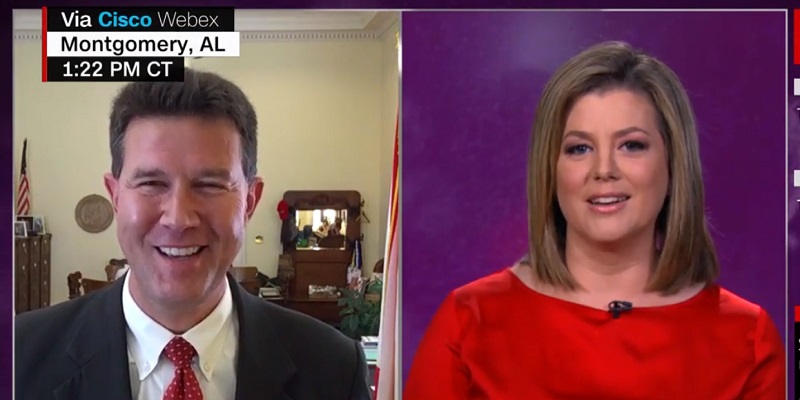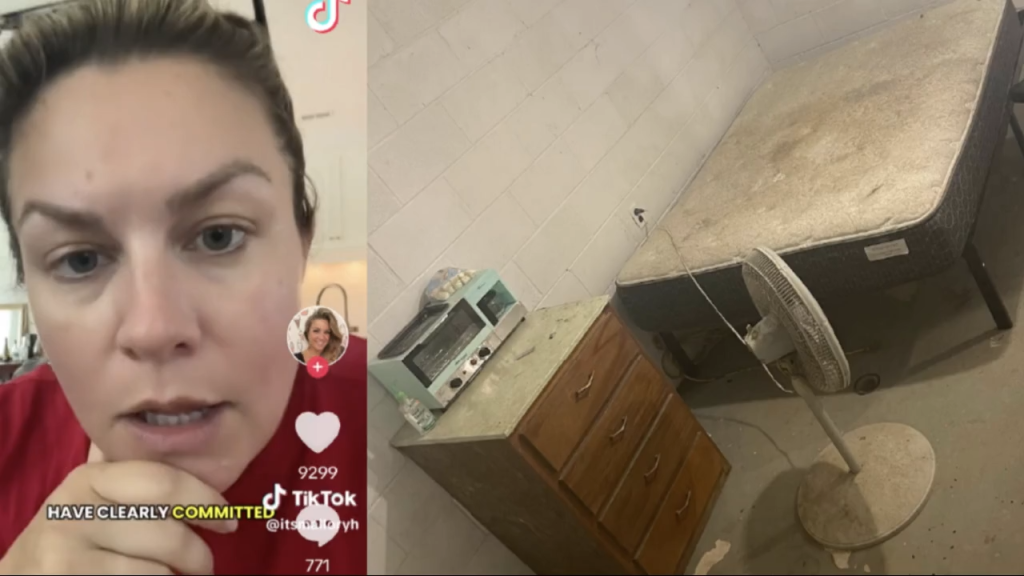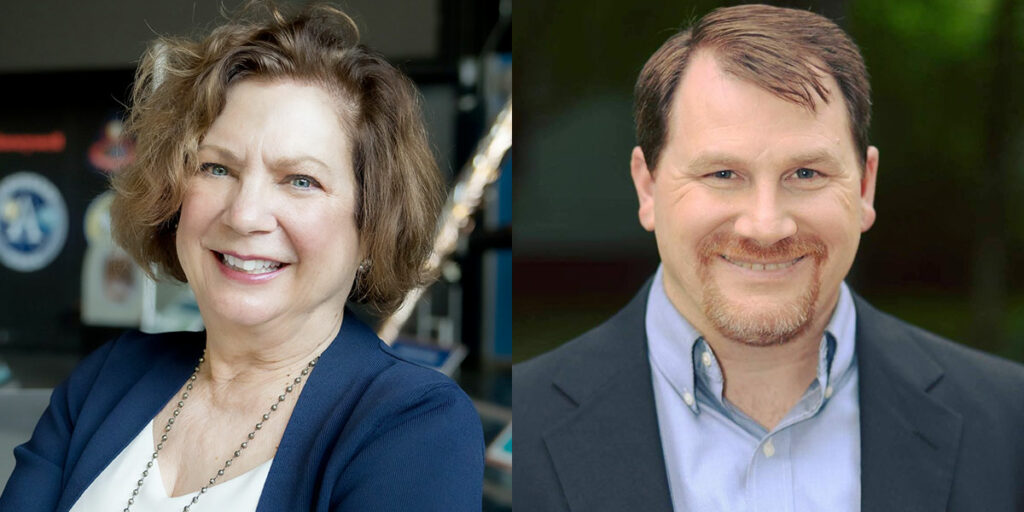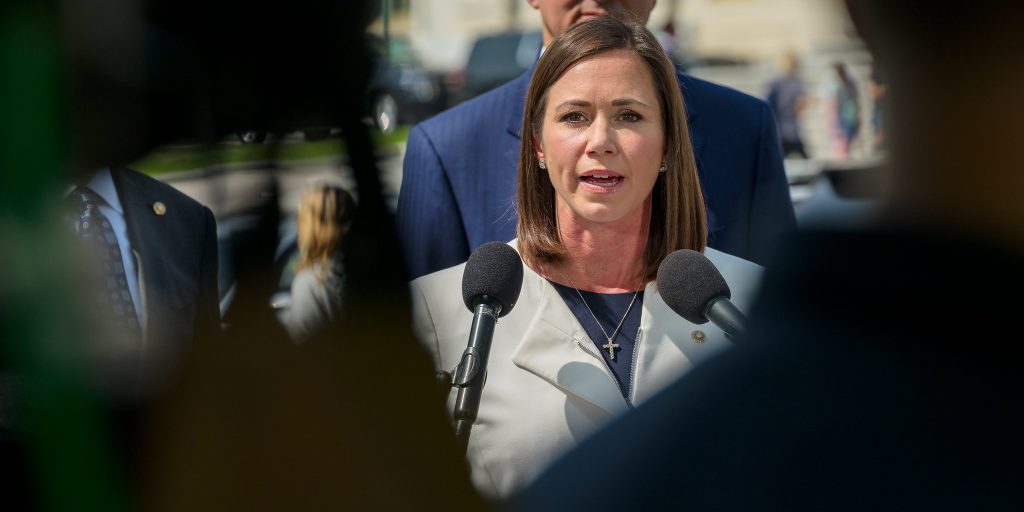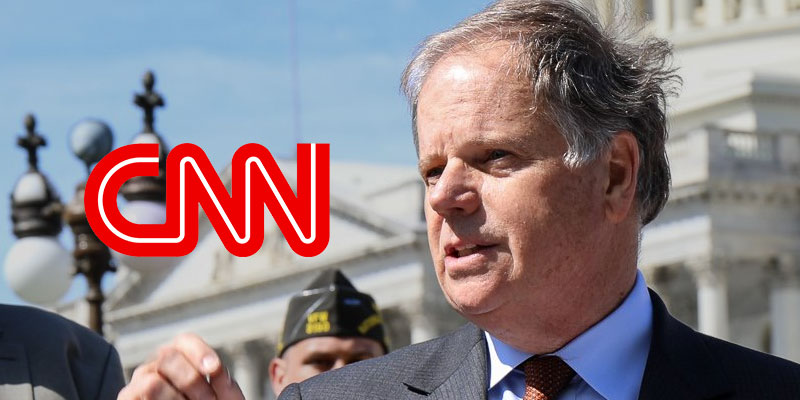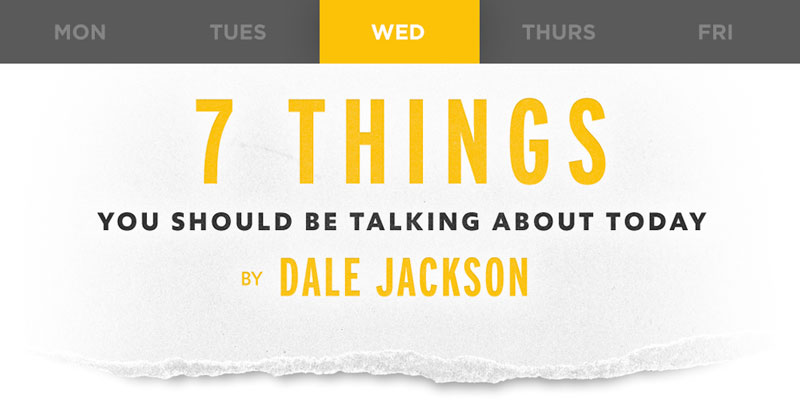For congressional Democrats, the coronavirus pandemic has offered them an opportunity to promote a long-sought change to voting procedures, which is a vote-by-mail system.
Under a Democrat proposal, registered voters would be sent a ballot by mail with return postage, which differs from the absentee ballot process currently in place in Alabama, which requires those seeking to mail in a ballot to apply for an absentee ballot.
Tuesday, Alabama Secretary of State John Merrill appeared on “CNN Newsroom,” in which he took on the conventional wisdom of the vote-by-mail system in the age of COVID-19.
Transcript as follows:
KEILAR: As states grapple with how to handle upcoming elections without spreading coronavirus at polling locations, President Trump is taking a stand against mail-in ballots, tweeting the baseless claim this weekend that it would create, quote, “The greatest rigged election in history.”
And he’s also threatened to cut funding to the state of Michigan, after that state’s governor said she would allow mail-in ballots. And the Republican National Committee is suing California to stop the state from mailing absentee ballots to all voters.
Studies have found no evidence of widespread voter fraud as a result of in-person or mail-in voting. My next guest is assuring the president, though, that his state, Alabama, is going to abide by President Trump’s wishes, tweeting, quote, “Don’t worry, Donald Trump, we will not have direct mail-in voting in Alabama. We have provided an excuse provision for anyone that wants to vote absentee, and our polling sites will be open for anyone that wants to vote in person.”
Alabama Secretary of State John Merrill, joining me now. Sir, thanks for coming on.
JOHN MERRILL (R), SECRETARY OF STATE OF ALABAMA: Brianna, great to be with you. Thanks for having me as your guest.
KEILAR: OK, we love having you as a guest. I want to ask you as a guest. I want to ask you about this excuse provision that you mentioned in your response to the president. Would this include someone who is concerned about public health? Who says, you know, I’m not comfortable going in person to — because of coronavirus — would they be able to use that as an excuse for getting an absentee ballot?
MERRILL: They would, Brianna. You know, actually, in Alabama, we are an absentee-excuse state, which means that there are a number of provisions that are available for the voter to choose, to indicate whether or not he or she meets one of those standards when it comes to excusing themselves from the polls on Election Day.
However, when we’re in a time of declared state of emergency, like we are now, the Code of Alabama actually gives me as the secretary of state the ability assign a reason for people to choose if they want to vote absentee and they do not meet one of those criteria.
And the one that we’ve elected for people to choose is the one that says, I’m ill or infirm and will be unable to appear at my regular polling site on Election Day.
KEILAR: OK. So we have the absentee ballot here that you mentioned. There’s a whole line of, as you mentioned, examples here. So you’re saying that they can choose this one that says they have an illness or infirmity. But the difference then would be that the onus is on them to request an absentee ballot ahead of time?
MERRILL: Yes. They simply need to mark that. And of course, they can download the absentee ballot application at our website, at Alabamavotes.gov, or they can call our office at 334-242-7200, and we will direct them to their local circuit clerk. They can call their local circuit clerk if they have that number.
If they don’t have a way of downloading it from a computer, then we will be happy to mail them an application and then send them a self- addressed, stamped envelope so they’ll know where to return it when they get ready to complete it.
KEILAR: Do you worry that with the — what we’ve been seeing as rapidly changing sort of health situations, including in your state, do you worry that putting the onus on people to request an absentee ballot using sort of foresight that maybe this virus does not allow, could actually negatively impact public health in your state? [14:20:18]
MERRILL: No, I don’t think so, Brianna.
Another thing I think should be noted is that, as the trend continues to improve in our state, the data and the science, one of the things that we want everyone to know is that all 1,980 polling sites in the State of Alabama will be open for our 3,593,385 registered voters.
So we want our people to do what they feel comfortable doing. If they’d rather vote absentee, we’ve had a period of time of more than 100 days for them to make applications. As a matter of fact, it’s 44 days until the qualifying date ends to receive an absentee ballot application, which in on July the 9th.
KEILAR: Are you aware that the second wave in 1918 was actually the most deadly, that actually half of the people who died in 1918 from the pandemic then, died between September and December, which would put the election right in the middle there?
MERRILL: Well, and of course, we’re talking about a different period of time, when there was a lot less information than there currently is today.
But, Brianna, I’m no scientist, I’m no health official. And I do follow the guidelines that have been prescribed by the Center for Disease Control, as well as our very able state health officer, Dr. Scott Harris, who’s doing a tremendous job, along with Governor Kay Ivey. So we want to continue to do what they’re advising us to do, and that’s what we’ve done so far, and that’s what we will be doing.
KEILAR: The president says that mail-in voting would create a rigged election. Do you agree with him that it would result in voter fraud?
MERRILL: Well, look, Brianna, this is what I know. I know that since I’ve been the secretary of state in Alabama — five years, four months and eight days — we’ve had six convictions on voter fraud, we’ve had two elections that have been overturned. Five of the six that have been convicted were convicted for fraudulent activity related to absentee balloting. I know that for a fact.
I also know that we’re doing everything —
KEILAR: Are you aware that the research shows that in-person voting is more likely to result in voter fraud, which overall is basically nonexistent? So it’s kind of odd we’re having this conversation. But mostly it’s —
(CROSSTALK)
MERRILL: Well —
(CROSSTALK)
KEILAR: — in-person voting, not absentee ballot voting. MERRILL: Yes. They’re entitled to their own opinion, but they’re not
entitled to their own facts. And the facts in our state show that we have had voter fraud, we have had people convicted and those people are currently incarcerated, period. We’re making it easy to vote and hard to cheat in Alabama. We’re going to continue to do that.
KEILAR: I recall you actually using that same line when we spoke in 2017, when you came on and talked about how allegations of voter fraud —
MERRILL: Yes —
(CROSSTALK)
KEILAR: — in a midterm election actually had not come to fruition.
MERRILL: Yes, ma’am.
KEILAR: It’s not — even as you describe the numbers, it’s not something that is at all widespread, or you would expect at all would impact an election —
(CROSSTALK)
KEILAR: — but is that the reason — that’s the reason why you would want a situation where more people are coming to the polls? Do you want more people coming to the polls?
MERRILL: Brianna, we want to break records for voting, just like we have over the last five major elections that we’ve had. We’re very, very proud of that.
We have turned, the tide, so to speak, in the state of Alabama by registering 1,519,888 new voters since I’ve been the secretary of state. We’ve broken every record —
KEILAR: Can I ask you, though, are you OK with the result of your decision being that there are more people coming to vote in person, which could put them — and even — I mean, Republican voters, older voters trend Republican, so these are even voters in your own party —
MERRILL: But, Brianna, that’s the reason —
(CROSSTALK)
KEILAR: — people who works at polls tend to be older. Are you worried you could put them at risk?
MERRILL: That’s the reason why we’re giving folks an option. If they’re concerned about going to one of the 1,980 polling sites in Alabama, we want them to vote absentee. We’re going to make it easy for them to do that because we want them to do what they feel comfortable doing.
I’m not for removing the liberty and the freedoms of our people. I am for giving them all the information we can possibly give them so they can make a well-informed decision about what they should do that’s in their best interest and the best interests of their family.
But we’re going to continue to do everything we can to help the people of this state make those well-informed decisions.
KEILAR: So how is what you’re doing then, with the excuse — they’re able to use one of these excuses for the absentee ballot form — how is that any different than mail-in ballots?
MERRILL: Well, with direct mail-in ballots that we have been hearing so much about in the media, and what the president was talking about, requires the secretary of state or the chief election official to send either absentee ballot applications or ballots to all voters in that state.
Well, we’re opposed to that for a number of reasons, not the least of which is the lack of security. I mean, there was just an article from four years ago, where one person in California received 83 ballots mailed to that particular individual, all directly mailed to that person. That’s a problem, and it’s not a problem that we’re going to have in Alabama.
Another thing that you need to know, in each one of our election cycles —
(CROSSTALK)
KEILAR: But you know that’s not widespread, sir. You know that’s not widespread.
(CROSSTALK)
MERRILL: Well, look, let’s be serious. If it happens one time, it’s one time too many. And we’re going to do everything we can to keep that from happening. It’s just like people that say —
(CROSSTALK)
KEILAR: Couldn’t you say the same thing about someone being infected with coronavirus, if it happens once, it’s one time too many? Because they stood —
MERRILL: Well, look —
(CROSSTALK)
KEILAR: — in line at polls —
(CROSSTALK)
KEILAR: — and then they were inside of a room?
MERRILL: Yes, I’m not a physician. And I don’t make health decisions, I was not trained in that way. I have been trained in elections, and as you know — because you’re having me as your guest — I’m recognized as one of the top election experts in the nation, I’m proud of that.
We earned that role, and we’re going to continue to work hard to —
KEILAR: But your decision will impact the health of people, very likely, certainly —
(CROSSTALK)
KEILAR: — potentially.
MERRILL: — if they’re concerned, they need to vote absentee. And so we’ve given them that opportunity, we want to make it easy for them to be able to do that.
KEILAR: Even if the onus now being on them creates a situation where if they — I guess my question is, so either — if the onus is on them, then they might have to decide on Election Day, OK, you know what, I didn’t do this or even the health situation —
(CROSSTALK)
KEILAR: — here in my state changed in the last week, I guess I need to go in person?
MERRILL: We got millions of people that are watching our broadcast right now, as you’re talking to me. And some of those folks are in our state. And those people that are concerned about this issue, can pick up the phone today, call their local circuit clerk or call our office at 334-242-7200 and we’ll make sure they get an absentee ballot application so they can get their absentee ballot.
They don’t have to wait until Election Day. We want them to vote early if they want to. We’ve defined a process for them to be able to do so, and we’ve made it as easy as possible.
KEILAR: And when’s the deadline for them being able to vote absentee in relation to the election, considering this is a fast-changing health situation?
MERRILL: Yes. July 9th is the last day to make application. July 13th is the last day to turn your ballot in —
(CROSSTALK)
KEILAR: You’re asking them to make a health decision based on November, for July? I mean, isn’t —
MERRILL: Oh, no, no, no, no.
KEILAR: I mean, isn’t that —
MERRILL: We’re not talking about November now, Brianna. Because November’s a long ways away —
(CROSSTALK)
KEILAR: I’m sorry, yes, that’s right, that is — that — how many days, can you tell me how many days?
MERRILL: Yes, it’s 44 days until the last day to make the application for the absentee ballot.
KEILAR: That’s a month and a half, right?
MERRILL: That’s right. And — but look, we’ve already had well more than 100 days. When we started this process, we were at 117 days. And every week —
(CROSSTALK)
KEILAR: Yes, but that’s not the point. I guess my point is, you’re — they have a decision to make, based on the health situation being a month — I understand what you’re saying, but the deadline date. A month and a half out, right?
MERRILL: Right.
KEILAR: So think of how quickly —
(CROSSTALK)
MERRILL: Well, there’s —
(CROSSTALK)
KEILAR: — things have changed in your state in the last month and a half.
MERRILL: That’s right. And so if they’re concerned, or if they’re not concerned. Brianna, look, I voted absentee in March. So my vote has already been in the ballot box for two months. And we want to encourage people that are concerned to go ahead and vote absentee, today. You can vote absentee today for the July 14th runoff.
We want people to be able to have their voice heard and their vote counted, for the candidate of their choice.
(CROSSTALK)
KEILAR: And what if they’re not concerned today, but after the deadline and before the election they are concerned? What do you say to them? Then what are their options?
MERRILL: Well, that’s why it’s important to plan ahead and to make good choices.
KEILAR: Can they use the emergency absentee ballot based on the medical issue —
MERRILL: No, no.
KEILAR: — in order to do this? No, they can’t? OK.
MERRILL: Not this particular — (CROSSTALK)
KEILAR: Just to be clear, so they’ve got to — all right, just to be clear, I think we’re pretty clear on how you’re conducting this. So John Merrill, we appreciate it. Thank you.
MERRILL: In a fair (inaudible) way.
KEILAR: Sorry, what’d you say?
MERRILL: In — we’re conducting it in a fair and transparent way. That’s exactly how we’re conducting it.
KEILAR: Well, it is transparent, I will give you that, sir. Thank you very much.
MERRILL: Thank you, Brianna.
@Jeff_Poor is a graduate of Auburn University and the University of South Alabama, the editor of Breitbart TV, a columnist for Mobile’s Lagniappe Weekly and host of Huntsville’s “The Jeff Poor Show” from 2-5 p.m. on WVNN.




